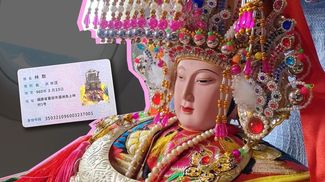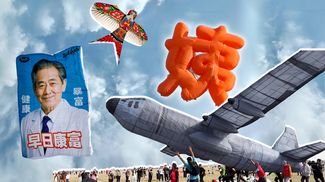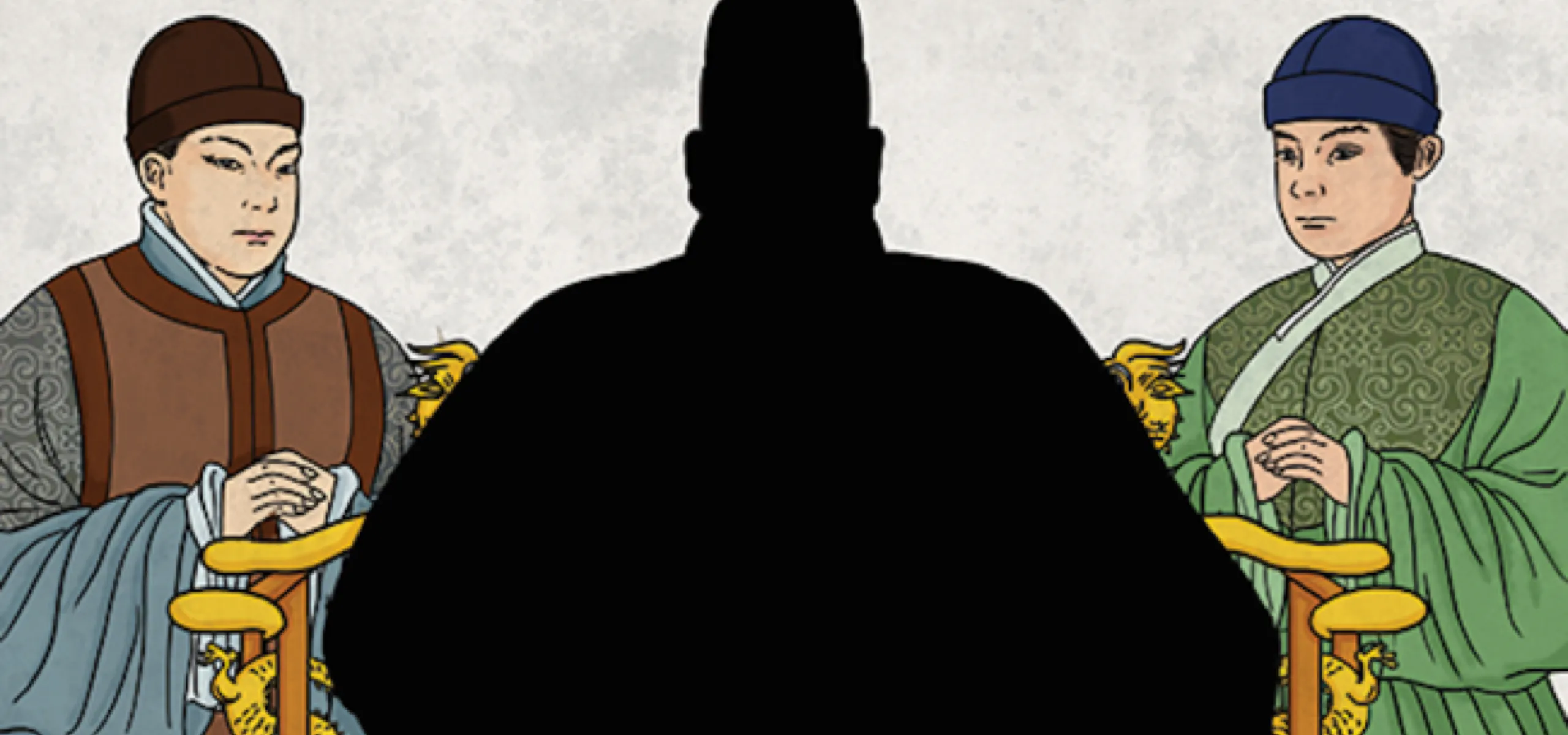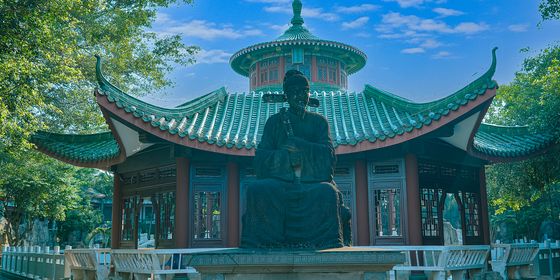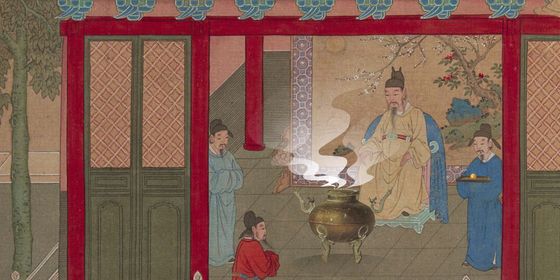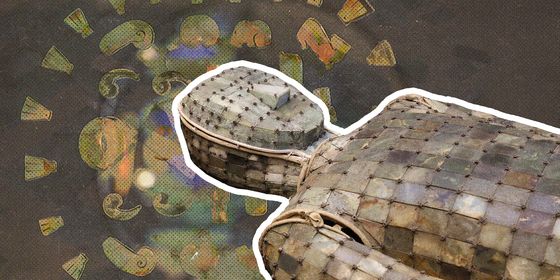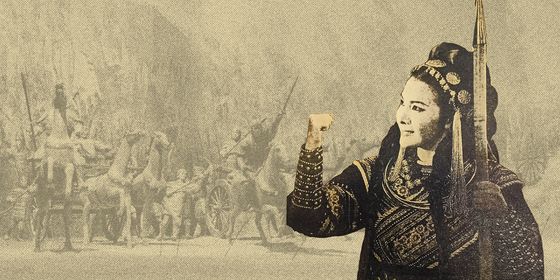Lost: One Emperor. If found, you can keep him.
How do you lose an emperor? I mean, it’s not like you would confuse the Son of Heaven with somebody’s wayward schnauzer. And yet the Ming Empire, no stranger to bizarre successions and eccentric rulers, somehow managed to misplace their monarch for nearly a year.
Zhu Qizhen (1427 – 1464) was the favorite son of the Xuande Emperor who ruled Ming China from 1425 to 1435. When his father died in 1435, Zhu Qizhen took the throne as the Zhengtong Emperor.
Only eight years old, the young monarch benefited from an experienced court to guide him in his new role. He inherited a trio of capable officials known as the Three Yang’s: Yang Shiqi (1366 – 1444), Yang Rong (1371 – 1440), and Yang Pu (1372 – 1446). These men had served the throne for decades, beginning during the reign of the Zhengtong Emperor’s great-grandfather, the Yongle Emperor.
Also watching over the fledgling sovereign was the boy’s grandmother, the Empress Zhang. She had been a powerful influence in the life of his father and continued to be a presence in the court of the Zhengtong Emperor.
But the young emperor soon found himself in thrall to the eunuch Wang Zhen. The Empress Zhang died in 1442 and the last of the Three Yangs passed away in 1446. Wang Zhen became the most influential figure at court. Officials and bureaucrats lined up to curry favor with the imperious eunuch and Wang Zhen even built a temple in his honor, the Zhihua Temple in Beijing which stands to the present day.
Wang Zhen convinced the impressionable young monarch to face personally the empire’s most formidable enemy, the Oriyad Mongol leader (and later Khan) Esen, on the battlefield.
Esen and his forces had repeatedly been rebuffed in their efforts to access border markets and to establish an embassy in the Ming capital. In a precursor of the European wars of the 19th century, Esen responded to the refusal of his entreaties with a series of military raids on the outskirts of the empire. Emboldened by his own successes, Esen had begun eyeing targets closer to Beijing.
The campaign against Esen was nothing short of a disaster. In August 1449, 500,000 troops left Beijing bound for the steppe led by a coterie of seasoned officers and high military officials. Rain and supply problems hampered the expedition. When the main army stumbled upon a battlefield littered with the corpses of Chinese frontier guards slaughtered by Esen’s troops, the emperor’s officials pleaded with him to abandon the plans for a campaign on the steppe as too dangerous. Less than three weeks after departing Beijing the army turned around. But rather than head back directly, Wang Zhen persuaded the Zhengtong Emperor to retrace their steps and head to the northeast, exposing the troops to Esen’s forces.
On August 31, the Ming army camped outside of the Tumu Postal Station, about 100 miles from the city. Early the next morning, Esen ordered a surprise attack. All of the Ming generals were killed as well as two Grand Secretaries, the Minister of War, and Wang Zhen. The few soldiers who survived the initial assault panicked and fled back toward the capital. In the confusion, officers and troops alike lost track of their monarch. When the dust cleared, Esen had routed the Ming forces, and the emperor was his prisoner.
The defeat threw Beijing into chaos. Residents fled the city fearing that Esen planned to sack the capital. Officials packed hastily and made plans to retreat to the secondary capital at Nanjing. Some even advocated ceding the north to Esen and ruling the south as had been the case during the Song Dynasty.
It was up to Yu Qian, the Vice Minister of War, to save Beijing and north China. He commanded the forces at Beijing to prepare the city’s defenses and to stand and fight. Rather than try and ransom the captive emperor or put his face on a milk carton, the court simply deposed the Zhengtong Emperor in absentia and handed the throne over to his younger brother. The Zhengtong Emperor would be remembered, fondly, as the “retired emperor”.
The Ming court refused Esen’s attempts to use the Zhengtong Emperor as leverage and the negotiations stalled his advance toward the capital and deprived his army of momentum and surprise. Ultimately, the Zhengtong Emperor would be his guest and prisoner for over a year until Esen decided that enough was enough and sent the once-and-future monarch back to Beijing. That’s when things got…a little awkward. One can only imagine the conversation at court: “Hey! You’re back. Awesome. Um…a few things have changed around here. New chef. You’re going to love his dumpling recipes. New carpet in the throne room, very nice. Oh yeah…your brother is now on the throne and he’s ordered your arrest and incarceration.”
For nearly seven years, the former Zhengtong Emperor was kept as a prisoner of his brother in a pavilion in the southern part of the Forbidden City. He suffered further when his brother deposed the Zhengtong Emperor’s son as the heir apparent in favor of his own child. But perhaps the Zhengtong Emperor was just biding his time. His nephew—the new heir apparent—died soon after being named crown prince. The Zhengtong Emperor’s brother also fell ill and in 1457, palace officials launched a coup, forcing their way into the Zhengtong Emperor’s chambers and whisking him away to the throne room for a surprise coronation. His brother, too ill to respond, died a short while later, reportedly at the hands of eunuch servants.
Looking to start fresh, Zhu Qizhen abandoned the reign name Zhengtong. Now ruling as the Tianshun Emperor, he took the opportunity to settle all family business starting with the man who saved Beijing and the empire, Yu Qian. Yu Qian—quite rightly—blamed the Tumu Debacle on the eunuch Wang Zhen and had Wang’s family and associates executed during the emperor’s time as a guest of Esen. Now the emperor would have his revenge, ordering the public execution of Yu Qian and the erection of a temple in honor of Wang Zhen.
The restored emperor ruled for another seven years. He died in 1464 at the age of 36. He would be the only emperor of the Ming era, and one of the few in Chinese history, to have two separate turns on the dragon throne.
“Anyone seen the Son of Heaven?” is a story from our magazine issue, “Farming”. To read the entire issue, become a subscriber and receive the full magazine. Alternatively, you can purchase the digital version from the iTunes Store.

